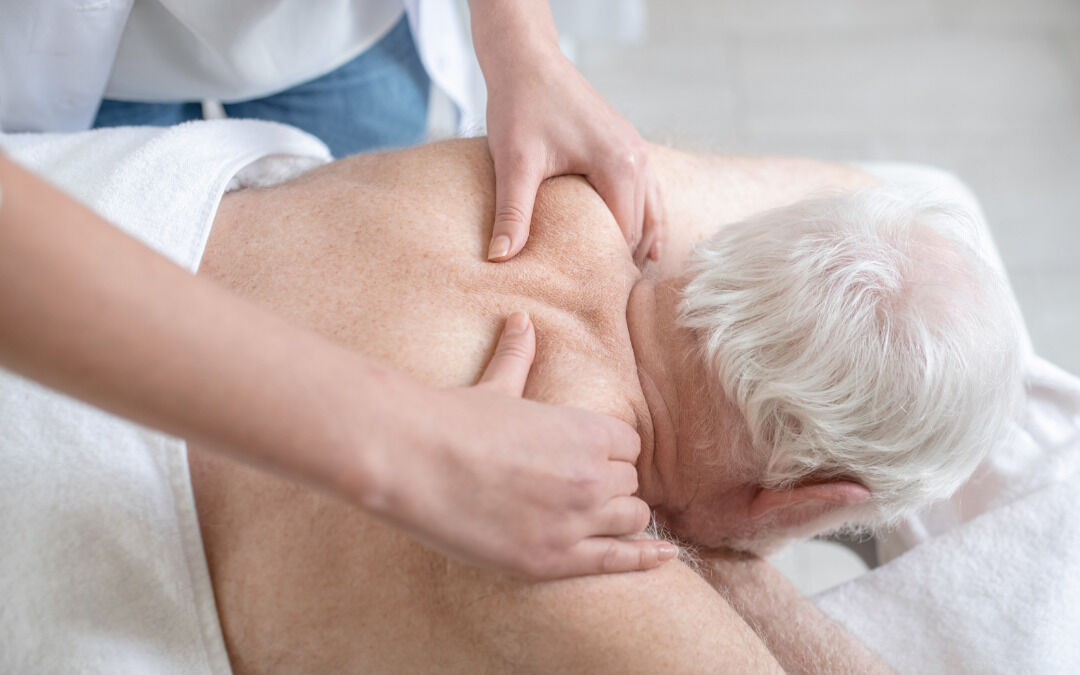Reference
Margenfeld, F., Klocke, C., & Joos, S. (2019). Manual massage for persons living with dementia: A systematic review and meta-analysis. International journal of nursing studies, 96, 132-142. https://doi.org/10.1016/j.ijnurstu.2018.12.012
Synthesis
This is a systematic review and meta-analysis of quantitative and qualitative studies focused on the effect of manual massage for persons living with dementia. Few studies and revisions made on this topic considered all kinds of massage and contact techniques, even non-touch techniques (like therapeutic touch). Thus, this study was focused on RCTs involving skin-to-skin and hand-massage interventions. Eleven RCTs (with a total of 825 persons living with dementia) results demonstrated the positive impact of manual massage on the management of behavioural and psychological symptoms of dementia. Therefore, it is important to introduce manual massage as a non-pharmacological treatment option, which has nearly no side effects and it is easy for caregivers and nurses to learn and apply in caring for persons with dementia.
Background and setting
Due to the ageing population, degenerative disorders like dementia will become more prevalent in the future. Dementia symptoms reduce the quality of life and the ability of persons to function socially. It is especially stressful for family caregivers. Therefore, self-management strategies led by the carers in order to positively influence the patients’ mood and behaviour changes are important in the context of the patients’ daily lives. Manual massage affects the skin and activates a particular sub-class of unmyelinated C-fibre afferents, who are also responsible for triggering oxytocin release. Oxytocin leads to an improvement of cognition and behavioural symptoms in people with Frontotemporal Dementia. Lastly, although the efficacy of massage for symptoms of dementia has been investigated, more studies are needed to improve the strength of guidelines and perspectives on such important issues.
Study design and Review methods
A systematic review and meta-analysis was conducted. Randomised controlled trials (RCTs) evaluating manual massage in patients with dementia with or without using (aromatic) oil were included. Considering the oxytocin hypothesis, only studies of a physical contact between care-giver and care-receiver were included and treatment duration was adequately considered. The intervention of the control group had to guarantee no physical contact between caregiver and patient. Only studies assessing behavioural and psychological symptoms of dementia, cognitive abilities or depressive symptoms with validated instruments were included and searched throughout most important electronic databases. Two reviewers independently extracted data and assessed risk of bias using The Cochrane Collaboration’s ‘Risk of bias’ tool. Data were pooled using the random-effects model. Sensitivity analysis considered the type of massage, oil and outcome. Funnel plots were performed.
Results
The electronic search strategy identified 1661 studies. After title/abstract screening, 32 studies remained. Eleven RCTs met all inclusion criteria. This is the first meta-analysis examining the mean changes in behavioural and psychological symptoms of dementia outcome measures whilst comparing manual massage with no physical contact in patients with dementia. This study revealed that the effect of manual massage on the management of behavioural and psychological symptoms of dementia is statistically significant, demonstrated by significant effects on the Cohen Mansfield Agitation Inventory and the Cornell Scale of Depression in Dementia. Subgroup analyses regarding the type of intervention demonstrated significant effects for massage with aromatic oil and with interventions not using acupressure.
Limitations
The subgroup findings regarding type of manual massage may be vulnerable to bias due to the different numbers of included studies for massage (non-acupressure type massage n = 4 studies, acupressure type massage n = 2 studies).
Although only studies with validated instruments were included, so far there is no reliable evidence as to what extent of change among the validated instruments can be regarded as clinically relevant. Several authors suggested as clinically relevant a change of 8-11 using the Cohen Mansfield Agitation Inventory and a change of 11 using the Neuropsychiatric Inventory. In our study, subgroup analysis of the Cohen Mansfield Agitation Inventory reveals a change of about 12 points, which clearly surpass the suggested threshold for a clinically relevant change. However, severity of dementia cannot be measured by a single biological parameter but rather by observing and assessing complex cortical functions like behavioural and psychological symptoms of dementia. Thus, the difficulty of the assessment of these symptoms complicates the question about clinically relevant change. Further research is needed to help answer this.
What did this study add?
This study shows a significant improvement in behavioural and psychological symptoms following manual massage in persons living with dementia. Subgroup analyses show improved outcomes following the use of aroma oil and in massage types without acupressure.
What perspectives?
Healthcare professionals may help to reduce symptoms and, in turn, reduce the use of sedative medication with dangerous side effects (e.g. neuroleptic drugs). Thus, health care professionals should be encouraged to apply manual massage in persons living with dementia during routine care. Furthermore, as manual massage is easy to apply, it might be a useful strategy to be used by family caregivers in the hope of ameliorating changes in behaviour and mood of the relative living with dementia. It could be used to reduce the caregivers’ burden. Therefore, manual massage should be an integral part of family caregiver education programs.
Edited by Enrico De Luca




